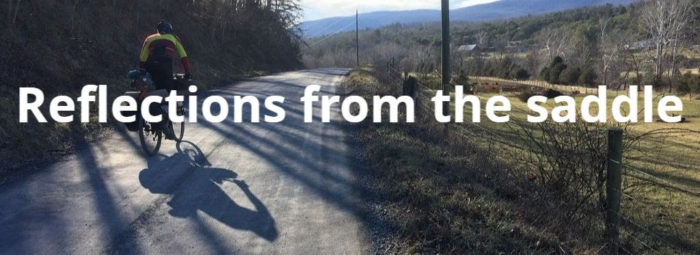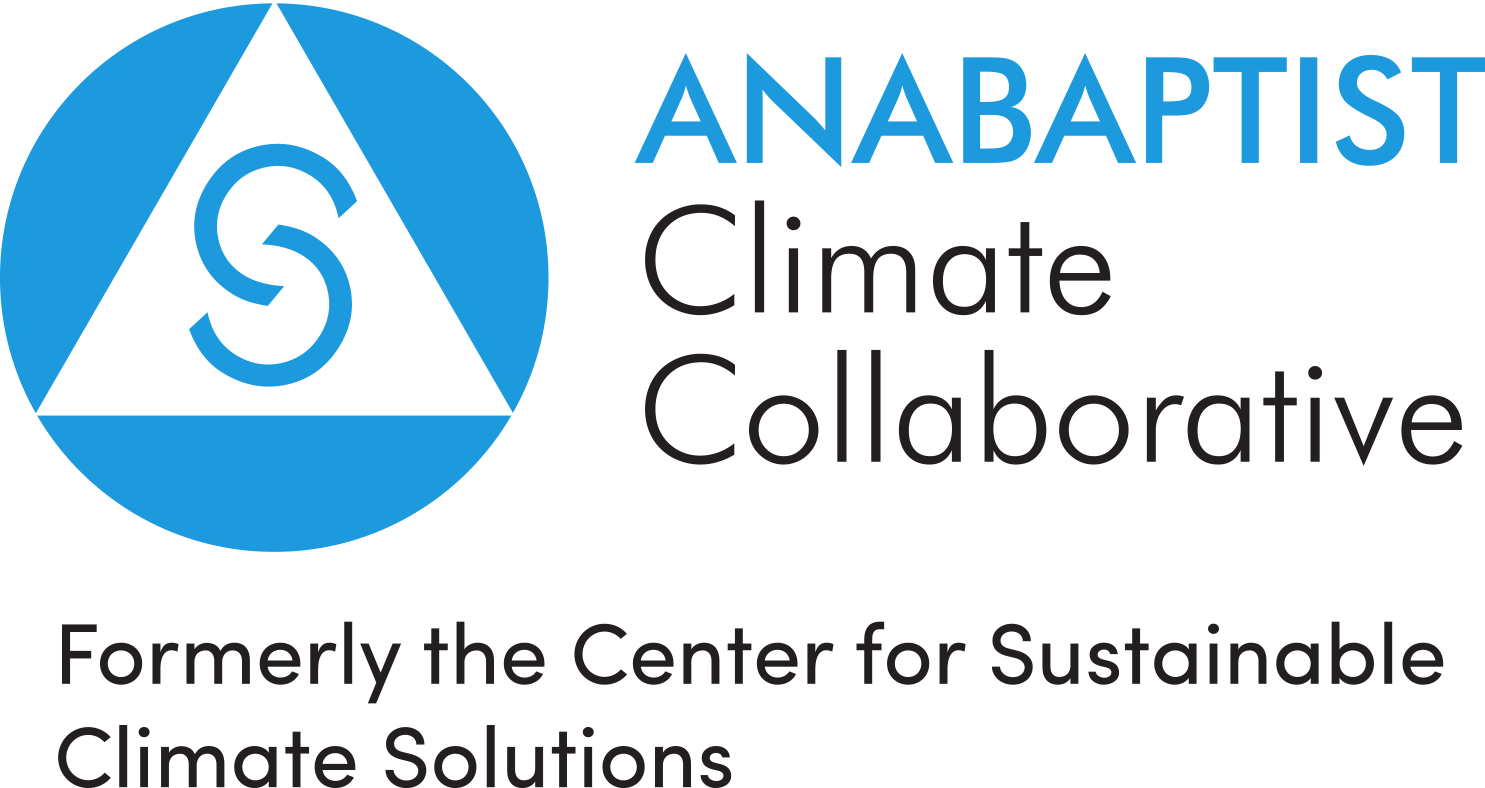
By Loren Friesen
‘Reading from the Same Map’
Fort Wayne, IN, July 17
As the rain has relentlessly poured down this past week, the comforting embrace of shelter in church hallways could not have come at a more opportune time. A wet day of riding with a dry destination is marvelous. A wet day of riding without cover at the end can be miserable. Dry clothes and a restful, uninterrupted sleep makes all the difference, and I think it’s safe to say I speak for everyone in expressing our appreciation for the number of churches that are generous enough to host 18 smelly riders.
In addition to the shelter, we have had more events in the past few weeks that have specifically focused on different aspects of climate change solutions, including learning from farmers practicing more sustainable methods to hearing how local members of different church communities advocate for or organize sustainable solutions.
While I have deeply appreciated all types of interactions throughout this entire journey, these planned events that include people working toward the same goal have been a breath of fresh air for me in several ways. During a large course of the trek through Wyoming and South Dakota, I had several interesting, impromptu conversations with other people, often state locals out on summer break camping at our campgrounds. Naturally, many of these people asked why 18 people were biking across the country, at which point I would tell them about CSCS and then attempt to talk more seriously about climate change solutions. An answer I would often receive, if we got into the conversation enough, is that the climate is warming naturally and there is nothing to worry about.
Sigh.
Although disheartened when hearing this, as a graduate of communication studies, I am also fascinated by these responses. It makes me think of the ways that we consume information and discern fact from fiction in a digital world pumped with data. When people have brought up this idea in the conversation, I haven’t had too much success getting anywhere any farther with any sort of discussion about the topic. How do you talk about an issue and plan for a solution when your conversant is consuming entirely different information than yourself?
This is the question that, in my mind, is at the crux of a variety of issues – not just climate change solutions. It’s hard to plan for a destination when two people are reading different maps. It’s hard to organize an action plan when the problem is not mutually understood. For me, information literacy – how to properly sort through, consume, and discern information – in the digital age, is a crucial foundation if there is to be any sort of meaningful dialogue on the topic.
The answer to this question is something modern society is still trying to figure out. To what extent do we regulate media companies? Create policies on algorithms around search results and advertisements? Break down information bubbles?
An interesting thread that came out from the beginning of CSCS’s event in Goshen was the fact that addressing climate change will take more than just environmental scientists. It will take political organizers and journalists and academics and business professionals. It will require all sorts of professions to collaborate together. Somewhere in this includes media and information specialists, those who can educate on media literacy and help create policies that ensure the conversational fabric of our society, while certainly tearing at the moment, doesn’t complete break down altogether. If we are to create solutions to climate change together, I hope we all can understand the problem together.

